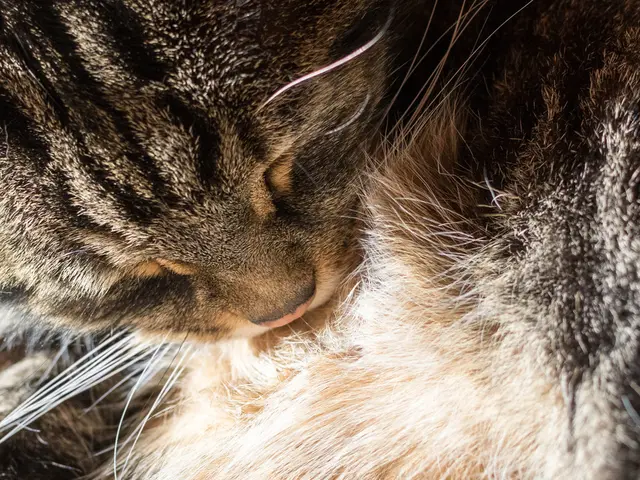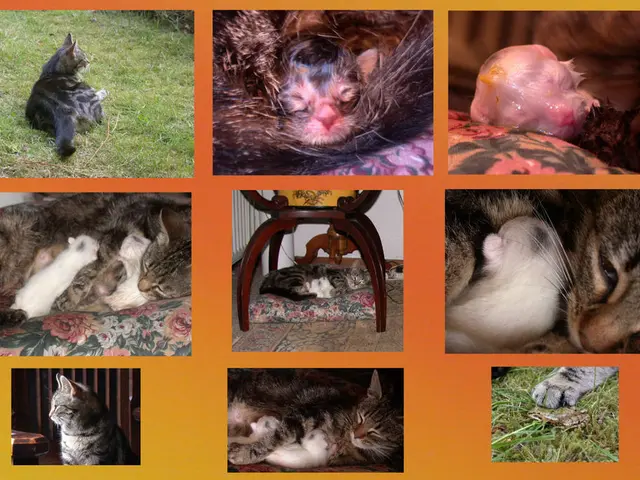In South Korea, the option to clone your beloved pooch is now available for a price.
Ready to dive into the fascinating, albeit somewhat ethically murky, world of pet cloning? Here's the lowdown!
Cloning your furry friend seems like the ultimate solution for those struck by grief, right? But let's take a closer look. The process involves multiple surrogate dogs, potential health issues for both the cloned animal and mother, and silent concerns over false hope and animal welfare.
Cloning isn't quite the simple, heartwarming journey it might seem. For starters, the process involves numerous surrogate dogs, and not all attempts are successful. Many cloned animals face health problems, and the surrogate mothers undergo invasive procedures. Your new pet might not be an exact replica of your beloved companion - even the spots on a Dalmatian clone could differ!
Is cloning a loving act or a coping mechanism for an inability to let go? Some argue it's an emotionally driven decision driven by sentiment rather than science. The ethical implications of cloning are complex and have sparked significant controversy.
So, how does the science behind pet cloning work? It's called nuclear transfer, and it involves extracting DNA from your pet's cells, implanting it into an egg from another dog, and placing it in a surrogate dog. Voila! If all goes well, you'll have a genetically identical puppy within months.
But what about Sooam Biotech, the South Korean lab that made headlines for cloning pets? Despite the founder, Woo Suk Hwang, being accused of falsifying research on human embryo cloning, the lab continues to operate, cloning around 15 puppies a month.
If cloning pets is controversial, just wait for the debate on cloning extinct species like mammoths. The implications for biodiversity and ecosystems are staggering. These questions, and many others, highlight the ongoing debate surrounding cloning technology, a field brimming with incredible potential but also fraught with ethical dilemmas.
For those who choose to clone their pets, the experience can be deeply personal. Take Peter Onruang, a US businessman who cloned his dogs, Wolfie and Bubble. After three years, he brought home their clones, Wolfie Bear, Wolfie Girl, Bubble Face, and Bubble Rubble. While they weren't exact replicas, they offered him a sense of closure and joy.
So, is cloning worth it? The answer is as individual as the bond shared between a pet and its owner. Science and technology have taken us to new heights, but they've also forced us to confront tough questions about love, loss, and ethics. Ultimately, the choice to clone a pet is deeply personal, with no one-size-fits-all answer.
- In the realm of science and technology, the field of health-and-wellness has extended to pets with the controversial method of pet cloning, a practice that raises numerous ethical concerns.
- Embracing the latest advancements in technology, lifestyle choices now include the option to clone not only ourselves but also our beloved pets, the latter of which has sparked debates about animal welfare and false hope.
- As technology permits the cloning of organisms, the possibility for science to extend its reach into fields like health-and-wellness and lifestyle, such as cloning endangered species for conservation purposes, presents both fascinating potential and looming ethical dilemmas.








